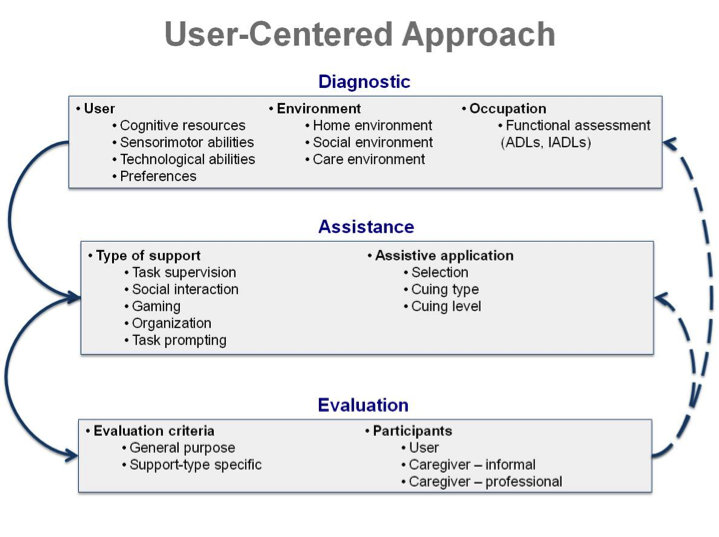Section: Research Program
Human-driven Software Design
Knowledge of the human characteristics (individual, social and organizational) allow the design of complex system and artifacts for increasing their efficacy. In our approach of assistive computing, a main challenge is the integration of facets of Human Factors in order to design technology support adapted to user needs in term of ergonomic properties (acceptability, usability, utility etc) and delivered functionalities (oriented task under user abilities contraints).
We adapt this approach to improve the independent living and self-determination of users with cognitive impairments by developing a variety of orchestration scenarios of networked objects (hardware/software) to provide a pervasive support to their activities. Human factors methodologies are adopted in our approach with the direct purpose the reliability and efficiency of the performance of digital support systems in respect of objectives of health and well-being of the person (monitoring, evaluation, and rehabilitation).
Precisely, our methodologies are based on a closed iterative loop, as described in the figure below :
-
Identifying the person needs in a natural situation (i.e., desired but problematic activities) according to Human Factors Models of activity (i.e., environmental constraints; social support networks - caregivers and family; person’s abilities)
-
Designing environmental support that will assist the users to bypass their cognitive impairment (according to environmental models of cognitive compensatory mechanisms); and then implement this support in terms of technological solutions (scenarios of networked objects, hardware interface, software interface, interaction style, etc)
-
Empirically evaluating the assistive solution based on human experimentations that includes ergonomic assessments (acceptability, usability, usefulness, etc) as well as longitudinal evaluations of use’s efficacy in terms of activities performed by the individual, of satisfaction and well-being provided to the individual but also to his/her entourage (family and caregivers).


